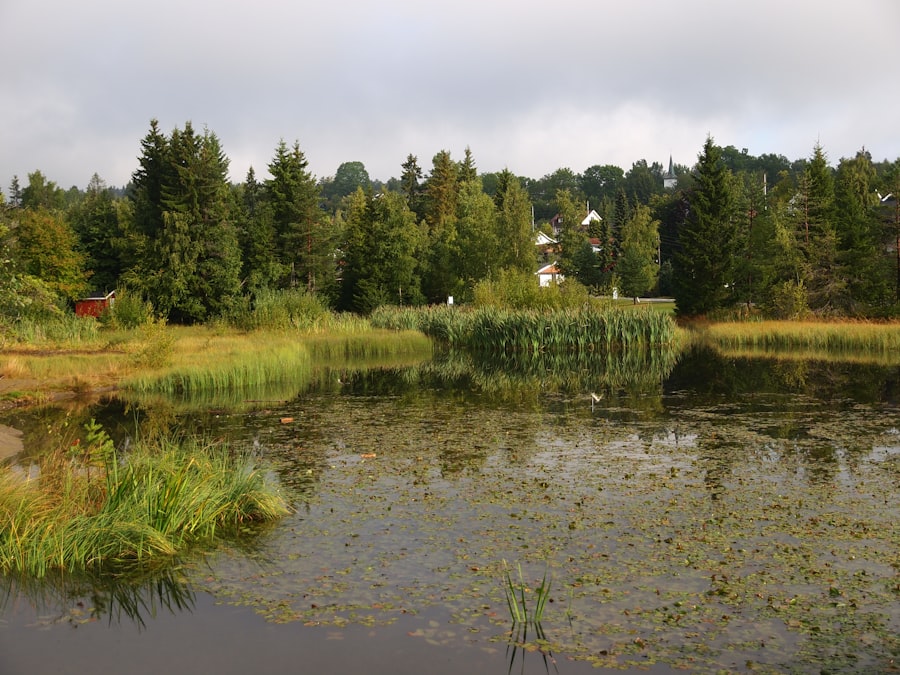In Norway, the concept of SFO, or “Skolefritidsordning,” plays a pivotal role in the lives of many families. This after-school care programme is designed to provide children with a safe and engaging environment outside of regular school hours. For parents navigating the complexities of work-life balance, SFO offers a reliable solution, allowing them to pursue their professional commitments while ensuring their children are well cared for and engaged in constructive activities.
The Norway Relocation Group is here to assist families in understanding and accessing these essential services, making the transition to life in Norway smoother and more manageable. SFO is not merely a childcare service; it is an integral part of the educational framework in Norway. It caters primarily to children aged 6 to 13, bridging the gap between school hours and parental availability.
The programme is designed to foster social skills, creativity, and physical activity, all within a structured yet flexible environment. As families consider relocating to Norway, understanding the nuances of SFO can significantly ease the adjustment process, ensuring that both parents and children feel supported in their new surroundings. Plan your relocation with confidence. Book a personal meeting with the Norway Relocation Group today.
Summary
- SFO, or “Skolefritidsordning”, is an after-school care program in Norway for primary school children.
- SFO was established in the 1970s to provide a safe and stimulating environment for children after school hours.
- SFO is typically organized within the school premises and is run by a combination of school staff and specially trained SFO employees.
- SFO staff are required to have relevant qualifications in childcare and undergo regular training to ensure the safety and well-being of the children.
- SFO offers a range of activities and a curriculum that focuses on play, creativity, and social development, with a strong emphasis on outdoor play and physical activity.
History and development of SFO
The origins of SFO can be traced back to the late 20th century when the need for after-school care became increasingly apparent. As more parents entered the workforce, the demand for structured care options for school-aged children grew. In response, the Norwegian government began to formalise after-school care provisions, leading to the establishment of SFO as a recognised entity within the educational system.
This evolution reflects broader societal changes, including shifts in family dynamics and the increasing importance placed on early childhood education. Over the years, SFO has undergone significant transformations to adapt to the changing needs of families and children. Initially focused on providing basic supervision, SFO programmes have expanded their scope to include a variety of educational and recreational activities.
This development has been driven by a growing understanding of child development and the importance of holistic education. Today, SFO is seen as an essential component of a child’s overall learning experience, complementing formal education with opportunities for social interaction and personal growth.
Structure and organization of SFO

SFO programmes are typically organised within or adjacent to primary schools, allowing for seamless integration with the school day. Each SFO operates under the auspices of local municipalities, which are responsible for setting guidelines and standards. This decentralised approach allows for flexibility and adaptability, enabling each SFO to tailor its offerings to meet the specific needs of its community.
The structure often includes a mix of indoor and outdoor spaces, providing children with diverse environments in which to learn and play. The organisation of SFO is characterised by a strong emphasis on collaboration between staff, parents, and the local community. Staff members are often drawn from various backgrounds, including education, childcare, and recreation, ensuring a rich tapestry of skills and experiences.
This collaborative approach not only enhances the quality of care provided but also fosters a sense of community among families. Parents are encouraged to participate actively in SFO activities, creating a supportive network that benefits both children and caregivers.
Qualifications and training of SFO staff
The qualifications and training of SFO staff are crucial to ensuring high-quality care and education for children. In Norway, staff members are typically required to have relevant educational backgrounds, such as degrees in pedagogy or early childhood education. Additionally, many SFO programmes prioritise ongoing professional development, encouraging staff to engage in training sessions and workshops that enhance their skills and knowledge.
This commitment to staff training reflects a broader recognition of the importance of quality in after-school care. Well-trained staff are better equipped to create engaging programmes that cater to children’s diverse needs and interests. Furthermore, ongoing professional development fosters a culture of continuous improvement within SFO settings, ensuring that staff remain informed about best practices in child development and education.
Activities and curriculum in SFO
The activities offered within SFO programmes are designed to be both enjoyable and educational. A typical day may include a mix of structured activities such as arts and crafts, sports, music, and outdoor play, alongside opportunities for free play where children can explore their interests independently. This balance allows children to develop essential life skills while also enjoying their time after school.
Curriculum development within SFO is guided by the principles of the Norwegian National Curriculum Framework for Kindergartens and Schools. This framework emphasises play-based learning and encourages programmes to incorporate elements that promote creativity, critical thinking, and social skills. By aligning with these educational principles, SFO not only supports children’s academic growth but also nurtures their emotional and social development.
Funding and costs of SFO

Funding for SFO programmes primarily comes from local municipalities, which allocate resources based on community needs and priorities. While some funding is provided by the government, parents are also expected to contribute through fees that vary depending on factors such as income level and the number of hours their child attends SFO. This mixed funding model aims to ensure that SFO remains accessible to all families while also maintaining high standards of care.
The costs associated with SFO can vary significantly across different municipalities, leading to disparities in access and quality. Some families may find the fees manageable, while others may struggle to afford them. To address these challenges, many municipalities offer subsidies or financial assistance programmes aimed at supporting low-income families.
This commitment to inclusivity reflects Norway’s broader social welfare ethos, ensuring that all children have access to quality after-school care.
Importance of SFO in Norwegian society
SFO plays a vital role in Norwegian society by providing essential support for working parents while simultaneously contributing to children’s development. The programme not only alleviates childcare burdens but also fosters social cohesion by bringing together children from diverse backgrounds. In this way, SFO serves as a microcosm of Norwegian society, promoting inclusivity and understanding among young people.
Moreover, SFO contributes significantly to children’s overall well-being by offering a safe space for exploration and learning outside the traditional classroom setting. Research has shown that participation in after-school programmes can lead to improved academic performance, enhanced social skills, and increased self-esteem among children. As such, SFO is not merely an extension of school; it is an essential component of a child’s educational journey.
Differences between SFO and other after-school care options
While there are various after-school care options available in Norway, SFO stands out due to its integration within the formal education system. Unlike private childcare services or informal arrangements with family members or neighbours, SFO is designed specifically for school-aged children and operates under strict regulations set by local authorities. This ensures a level of consistency and quality that may not be present in other forms of after-school care.
Additionally, SFO programmes are typically more affordable than private alternatives, making them an attractive option for many families. The focus on educational enrichment sets SFO apart from other childcare options that may prioritise supervision over structured learning experiences. By providing a blend of recreational activities and educational support, SFO offers a unique solution that meets the needs of both children and parents.
Parental involvement in SFO
Parental involvement is a cornerstone of successful SFO programmes. Many SFOs actively encourage parents to participate in activities or volunteer their time, fostering a sense of community among families. This involvement not only strengthens relationships between parents and staff but also enhances children’s experiences by creating a supportive network that extends beyond the programme itself.
Furthermore, parental feedback is often sought through surveys or meetings, allowing families to voice their opinions on programme offerings and suggest improvements. This collaborative approach ensures that SFO remains responsive to the needs of its community while also empowering parents to take an active role in their children’s education.
Challenges and criticisms of SFO
Despite its many benefits, SFO is not without its challenges and criticisms. One common concern is the variability in quality across different municipalities; some programmes may struggle with inadequate funding or staffing shortages, leading to inconsistencies in care. Additionally, as demand for after-school services continues to grow, some families may find it difficult to secure spots for their children in popular programmes.
Critics have also raised concerns about the potential for overcrowding in SFO settings, which can impact the quality of supervision and individual attention each child receives. As more families rely on these services, it becomes increasingly important for municipalities to address these challenges proactively by investing in resources and infrastructure that support high-quality care.
Future developments and changes in SFO
Looking ahead, there are several potential developments on the horizon for SFO programmes in Norway. As societal needs continue to evolve, there may be an increased emphasis on integrating technology into after-school activities or expanding offerings related to mental health and well-being. Additionally, as more families seek flexible care options that accommodate varying work schedules, there may be a push for extended hours or alternative models that better serve diverse communities.
The ongoing dialogue surrounding SFO will likely focus on ensuring equitable access for all families while maintaining high standards of care. As municipalities continue to adapt their programmes in response to changing demographics and societal expectations, it will be essential for stakeholders—including parents, educators, and policymakers—to collaborate effectively in shaping the future of after-school care in Norway. In conclusion, as families consider relocating to Norway or navigating life within this vibrant society, understanding the role of SFO can significantly enhance their experience.
The Norway Relocation Group stands ready to assist families in accessing these vital services while also highlighting opportunities for language learning at institutions like the NLS Norwegian Language School in Oslo. By embracing both cultural integration and language acquisition, families can fully immerse themselves in Norwegian life while ensuring their children thrive within the supportive framework provided by SFO programmes.

